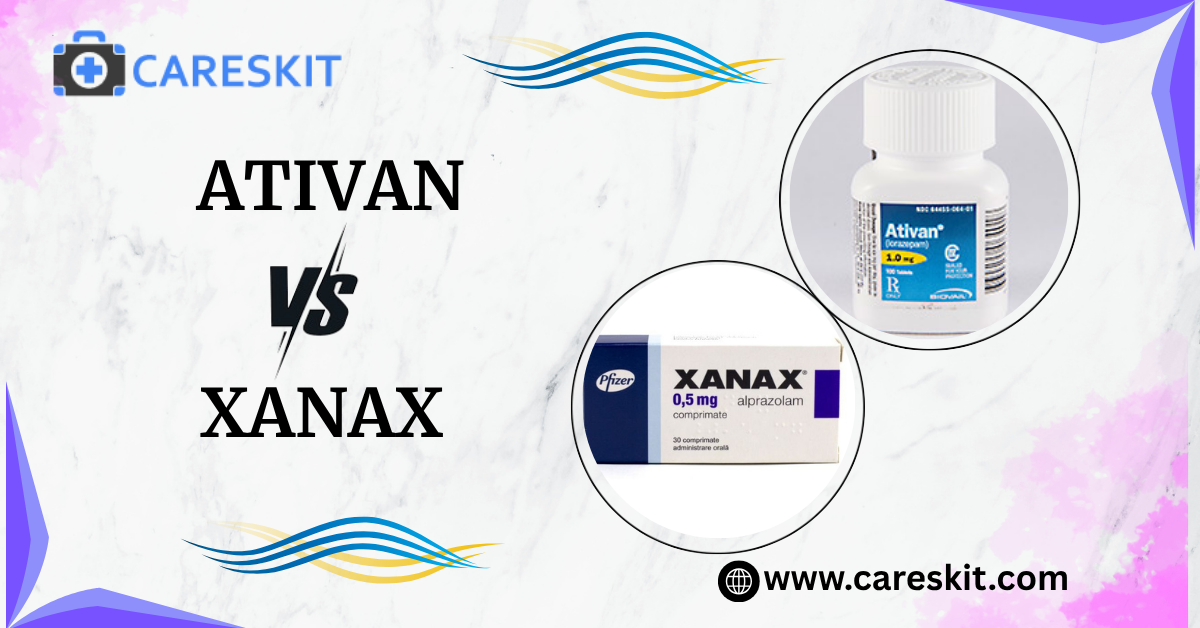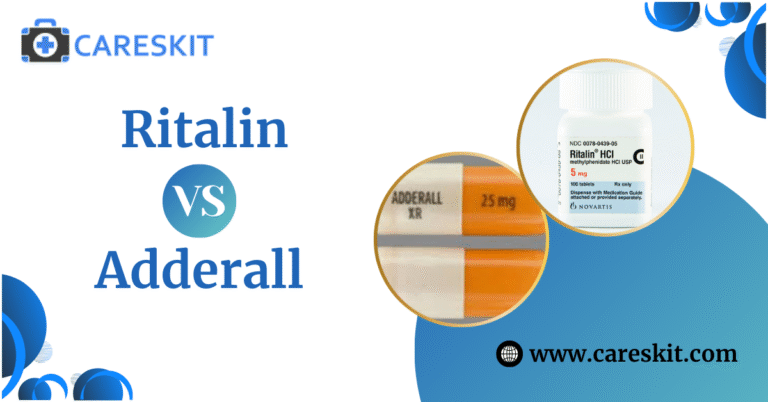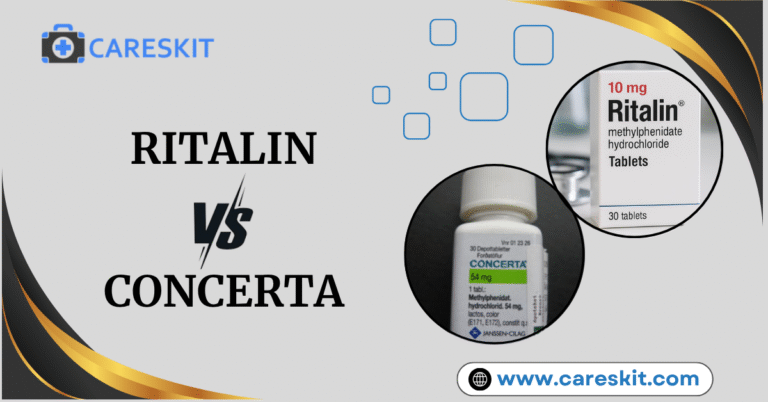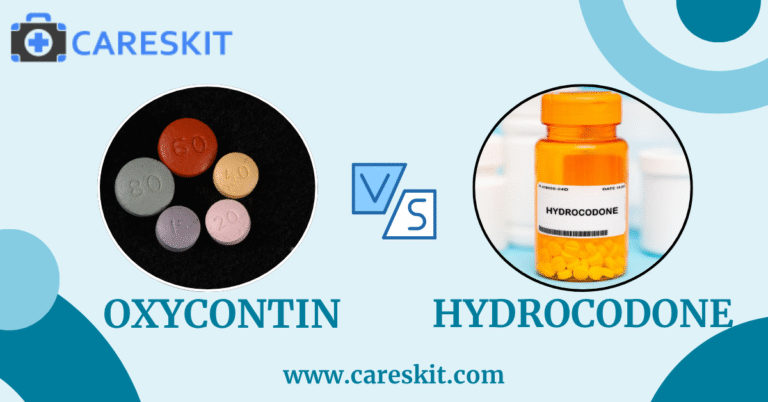Ativan vs Xanax – Guide to Choosing the Best Anxiety Treatment
Ativan( lorazepam) and Xanax( alprazolam) are two benzodiazepine trade names used for the treatment of anxiety complaints, wakefulness, muscle spasms, and phobias. They work by affecting the neurotransmitters in the brain and produce relief from anxiety. These specifics are analogous in numerous ways, but they’ve unique characteristics, such as energy, medium of action, onset time, and implicit side goods, that make them different in numerous ways. Understanding Ativan vs Xanax can help you make an informed decision regarding which option is right for you.
In this blog, we discuss full comparative analysis of Ativan and Xanax, according to their strength, addiction, onset of action, and dependence. You can learn everything about these drugs. After that, if you have any questions, then consult your healthcare provider or visit Careskit.com pharmacy for better treatment.
Understanding Ativan and Xanax Pills
Most healthcare professionals typically prescribe Ativan and Xanax tablets for anxiety disorders, panic attacks and sometimes insomnia or seizure conditions. They work by increasing the effects of GABA, which is a cool neurotransmitter in the brain, which creates a sedative, anti -concern effect.
Overview of Ativan
Lorazepam is the brand name of Ativan. It is specially prescribed for anxiety disorder or some other uses for medications are insomnia, seizures, and muscle spasms. It works on the brain’s gamma-aminobutyric acid (GABA) receptors and decreases the action of GABA to slow down the activity of the nervous system.
Ativan works very quickly and has a rapid duration, and has a high risk of dependence, tolerance, and withdrawal; therefore, its use should be limited to short-term treatment under strict medical supervision.
Ativan Dosage
It should be taken with good dosing and appropriate consideration for side effects which should limit the level of dependence and overdose. Both healthcare providers and patients must be careful before using this medication for anxiety relief. It comes in two strengths:
Anxiety Treatment
For those who start taking the recommended dose is between 2 to 3 mg per day, which can be split into two or three doses throughout the day, like taking one milligram in the morning and another at night.
- Maximum doses: Normally taken with respect to 10 mg (rarely used) in acute conditions
- Short-Term Ativan Dosage for Insomnia
- Usual dose: 1-2 mg is given before bed.
- Duration: Only used for temporary relief (7–10 days at most)
Overview of Xanax
Xanax is commonly prescribed for the management of anxiety and panic disorders where other medications are not effective to provide relief. It falls under the drug class named benzodiazepines and works by decreasing the effect of a natural chemical in the brain called GABA.
- Using Xanax can help people calm their nervous systems. This is when people can use a bit of help to decrease their anxiety, agitation, and tension; however, once you use Xanax, you can get addicted to it. If a person uses Xanax regularly or misuses it, it can alter how a person thinks or feels.
- This issue is somewhat mitigated when using Xanax short-term, but it can be habit-forming, and users should be closely supervised by medical means. Your doctor should only give patients a small amount of time, sometimes only days, using
Xanax Dosage
Dosage of Xanax is determined by the specific indication for use, the patient’s age, and the patient’s response. For generalized questions about anxiety disorder, a typical starting dose is 0.25 to 0.5 mg taken 3 times daily, and gradually increased.
- Xanax is a benzodiazepine, and should be used at the lowest effective dose for as short a duration as feasible to limit tolerance, dependence or withdrawal.
- Patients must always follow their doctor’s instructions regarding treatment, stop the medication at their advice, and never alter the dosage of medication without involving their doctor.
It comes in various strengths. All these dosages are highly effective in reducing anxiety. Some of these are:
- IR formulations – 0.25 mg, 0.50mg, 1 mg, 2 mg
- ER formulation : Xanax XR 3 mg
Oral medications:
Comparisons Between Ativan and Xanax
Both drugs are frequently given for anxiety or occasionally as a sleeping aid. Both work in a like manner to target the CNS but vary in their side effects, mechanism of action, onset time, and duration in the system. Some important differences are listed below for choosing which is better for your health.
Onset Action
Xanax is best for acute anxiety, it starts working within 15 to 30 minutes and offers fast relief. While Ativan is best for sustained anxiety relief and starts its work a bit longer 30 to 60 minutes but lasts longer.
Dosing and Strength
- Xanax possesses a relatively greater potential of action on a ml to ml scale than does Ativan.
- Xanax 0.5 mg is equal to Ativan 1 mg
- You may need a higher dose of Ativan to obtain the same effect that you got from a lower dose of Xanax.
Addiction and Dependence Risks
Both of these medications are in the benzodiazepine drug class and have some chance of addiction and dependence. Xanax can have a higher addiction risk than Ativan since it is used for a short period of time and is out of your body relatively quickly. Ativan is less habit-forming so you can use it for a long period of time under medical supervision.
Withdrawal Symptoms
Xanax forms more withdrawal symptoms due to its short life of action as compared to Ativan.
Xanax withdrawal symptoms are Insomnia, Tremors, Seizures, and Irritability. Symptoms of Ativan are Headaches, Mood swings, and Nausea.
Which has more potential in terms of anxiety relief?
Both drugs are also prescribed for anxiety but the better choice varies based on health profile, tolerance, and requirements. Xanax provides faster relief for panic attacks and acute anxiety, so it is frequently the choice of health care providers in emergencies, but it also wears off quickly – meaning a more acute risk of dependence and withdrawal symptoms. Ativan is a medication that is a supplement for the long term and is slower to complete its action in the body. Consult a certified healthcare provider to assess and select which one is better.
Ativan vs Xanax for Migraines
While Ativan and Xanax are not first-line treatments for migraines, they can be used in some instances when migraines are related to insomnia, stress, and significant anxiety that can increase attacks. Ativan is usually given in emergent conditions to minimize anxiety, tranquilize skeletal muscle tranquilizers and improve sedation in severe migraines. Before you start or discontinue any benzodiazepine medications for migraines, you should always confer with your physician.
Side Effects
Ativan and Xanax are specially used for anxiety, and both come under the benzodiazepine drug class and they share many of the same common and serious side effects due to their effectiveness on the central nervous system.
Common Side Effects
Some common side effects shared by Xanax and Ativan are
- Drowsiness
- Impaired coordination
- Dry mouth
- Fatigue
- Memory problems
- Blurred vision
Serious Side Effects
Some side effects are less common and share serious side effects that need immediate medical attention.
- Breathing problems
- reaction with other medications
- Seizures
- Allergic reaction
FAQs
Are Ativan stronger than Xanax?
In comparison to Ativan, Xanax is considered stronger for treating anxiety. Because Xanax acts within 15 to 30 minutes, has a fast onset, and a more potent effect. Hence Xanax is proven stronger in the reduction of anxiety or panic disorders.
Is it a safer option to take both medications at a time?
Both drugs taken on the same day are not advisable by any medical expert. Both drugs belong to the same powerful class which means they act the same way to capture the CNS and create a high risk for dangerous side effects. Speak to your doctors before you take the drugs.
Will Ativan show up the same as Xanax?
Both medications would show up the same as benzodiazepines on a standard drug screen. Different types of advanced drug tests such as gas or liquid chromatography are able to separate and precisely identify the substances used, be it Xanax, Ativan or other medications from the benzodiazepine class.
Final Word
The administration of Ativan and Xanax delivers strong results through their dosage guidelines and action mechanisms and their fast-acting properties and distinct adverse effects which treat anxiety and insomnia symptoms. The choice between Ativan and Xanax depends on patient anxiety severity and medical records and treatment tolerability. Your physician needs to establish the correct medication for your health condition.




